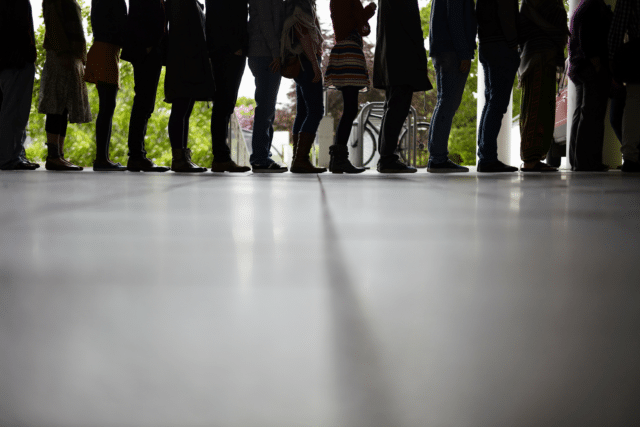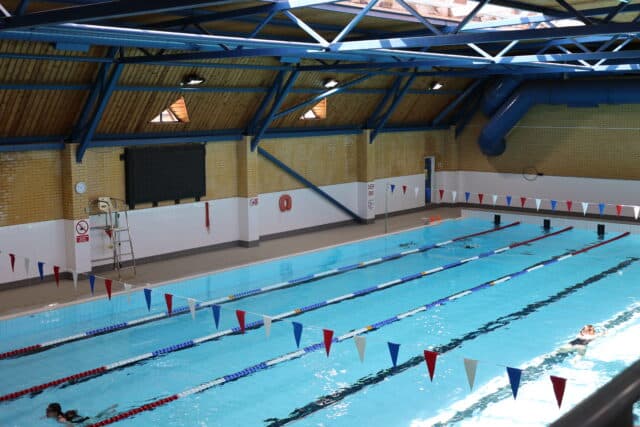Queuing: A Great British Tradition?
Monday’s assembly was all about something none of us like but we all do pretty much every day of our lives (and something that is arguably more a feature of life in the UK than anywhere else in the world) – queuing.
No one can say for certain but queuing likely became entrenched in the national psyche of Britain in the early 1800s, as a by product of the industrial revolution that led to the growth of cities that brought more people together than had ever been the case before. The sanctity of the Great British Queue was further established during World War Two at a time when many foodstuffs were rationed so that people had a fair chance of buying the things they needed. This was a time of shortages, and things that weren’t rationed would be put on sale as soon as they arrived in shops. Word would spread that something or other was available from a certain shop, and long queues would start to form. People would sometimes join the queue without even knowing what was on sale, on the off chance that it would be something useful and it has given rise to the belief that it reflects the fact that we are a nation that believes in fairness and practicality. More recently, during a five-day period in September 2022, around 250,000 people queued – many for over 24 hours – so they could pay their respects to the late Queen Elizabeth II by filing past her coffin.
Imagine what life would be like without queues. Invariably, there would be people who were bigger, stronger, faster or cleverer than us who could push in, whilst the very youngest and oldest in society would likely have a much less happy existence. In that sense – unless we think we’re simultaneously the strongest, smartest, fastest, and most universally capable human beings on the planet, we should be thankful that queues exist and recognise that for the most part, people use them in ways that make life less miserable, not more.
Queues also teach us patience in a time of immediate gratification, offer the chance to slow down in a fast-moving world, and provide the opportunity for either a quiet moment to ourselves or a conversation you may otherwise not have had.
They can also foster solidarity and a sense of community. People in long queues tend to look out for one another. They won’t let people push in front of others, and they’ll usually save your spot if you have to ask. Queues are self-protecting. The line takes care of its own.
In one sense, the queue is one of our most noble collective achievements that shows how members of society will come up with rules that help keep things fair.
Sadly, all is not well in the world of queues and there are an increasing number of places where if you have money you can bypass them. Theme parks offer Fastpasses, whilst airports and other holiday destinations allow those who pay more to get ahead of others. That might sound appealing, especially if you have a lot of money to spare, but many would argue that they undermine an unwritten yet important rule by which we have lived for 200 years: the certainty that people will be served in an order that is fair and equal. In that sense, the queue is a tradition that we should protect and preserve despite how annoying it may be.
There probably aren’t many things in life that almost everyone dislikes but – at least in this country – respects and follows at the same time. My message to the students on Monday was that – like everything in life – we’re all free to decide how we react to any situation we find ourselves in. Queuing is something all of us do at least once pretty much every day of our lives, so we may as well look at it in a positive light as a chance to slow down, take a moment, or talk to someone, safe in the knowledge that by queuing we’re playing a small part in maintaining a Great British tradition.
Have a great weekend
Best wishes,
Michael Bond




